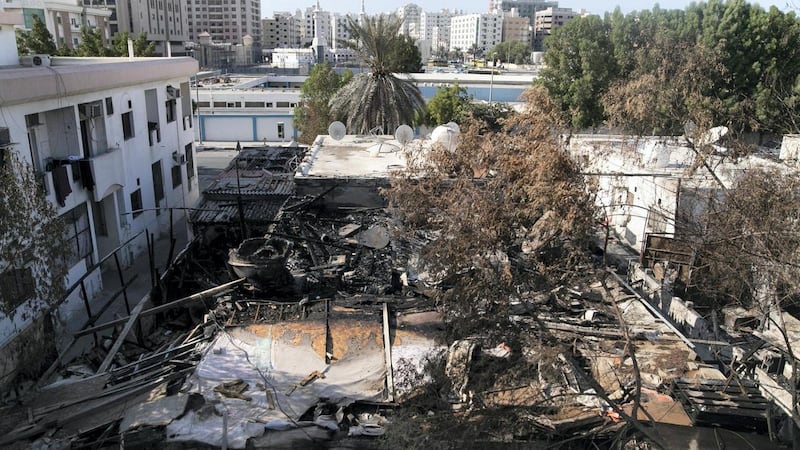The deaths of a mother and her seven-year-old son in a house fire in Sharjah serve as grim reminders of the perils of illegal sub-letting and overcrowding, a stubbornly persistent problem in the cities of the UAE. The building had been divided into sublet units and 64 people were injured in the blaze. Overcrowding blights neighbourhoods and strains utilities, including water, sewage and electricity. Crude partitioning, dangerously extended electrical wiring and ad hoc cooking arrangements are a recipe for disaster. This isn’t the first time overcrowding has led to tragedy and, unless firm action is taken, it won’t be the last.
In 2008, 11 men died in a fire in a two-storey villa in Naif, Dubai, which had been occupied by about 500 people crammed into multiple sub-divided rooms. In 2016, Abu Dhabi municipality recorded more than 3,300 violations of housing law, warning of hazardous living conditions created by unscrupulous landlords or agents. The problem is not confined to the older, less affluent districts of the cities. Last year Dubai authorities stepped in after residents in the upmarket Jumeirah Lake Towers development complained that many properties were being illegally sublet. One small apartment was found to have been divided into eight tiny rooms.
This is not a failure of regulation, but of enforcement. The laws are clear, and the penalties severe – in Abu Dhabi both residents and landlords face fines of up to Dh100,000 each if more than three tenants are found to be sharing one room. It is difficult to blame the low-paid worker, understandably happy to take advantage of cheap accommodation, no matter how mean or hazardous it might be. The true culprits are those who exploit them.
Thanks to mandatory registration schemes, such as Tawtheeq in Abu Dhabi and Ejari in Dubai, all rental properties and their associated contracts must be registered, and the regulations on overcrowding are set out clearly. Those who choose to flout them, abandoning their moral and legal responsibilities, and putting personal gain above the safety of individuals and entire communities, must feel the full weight of the law.





